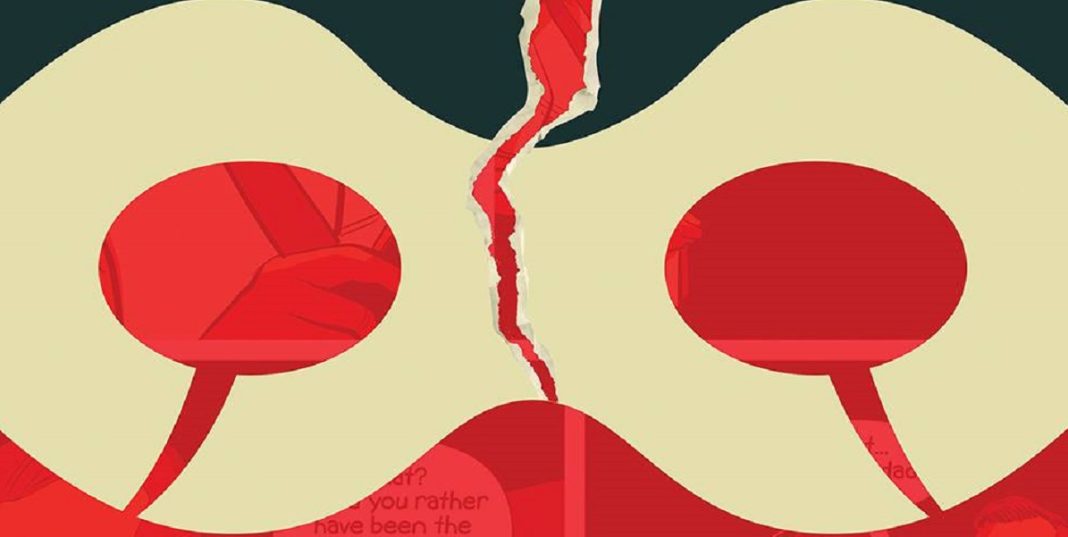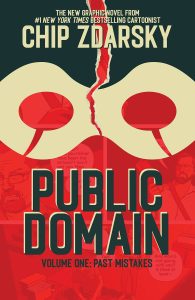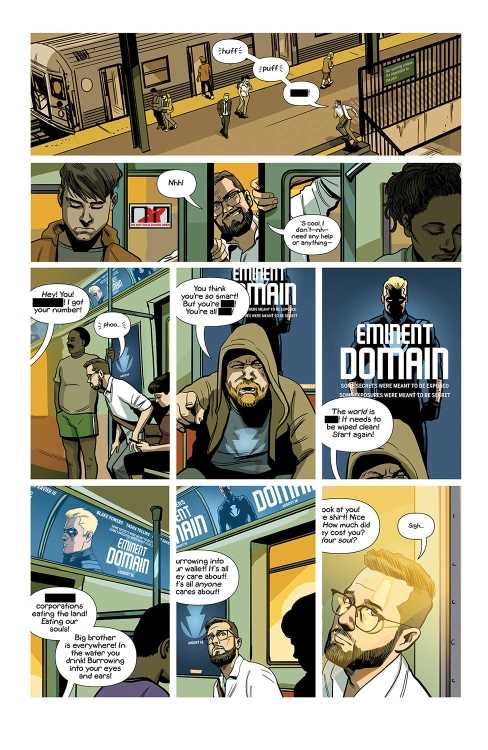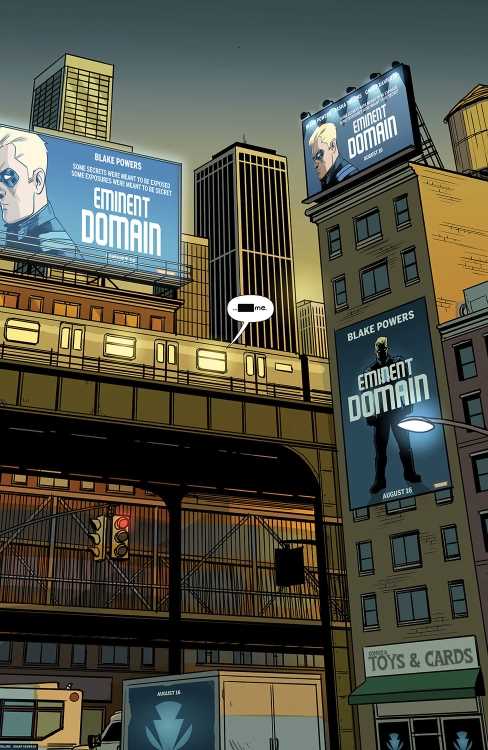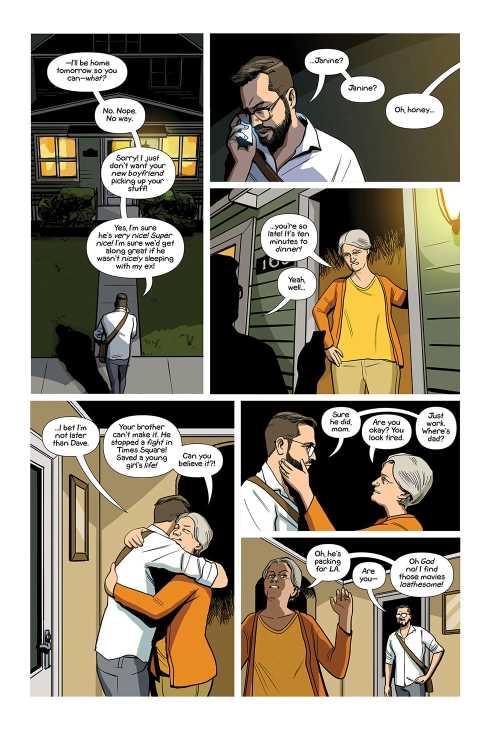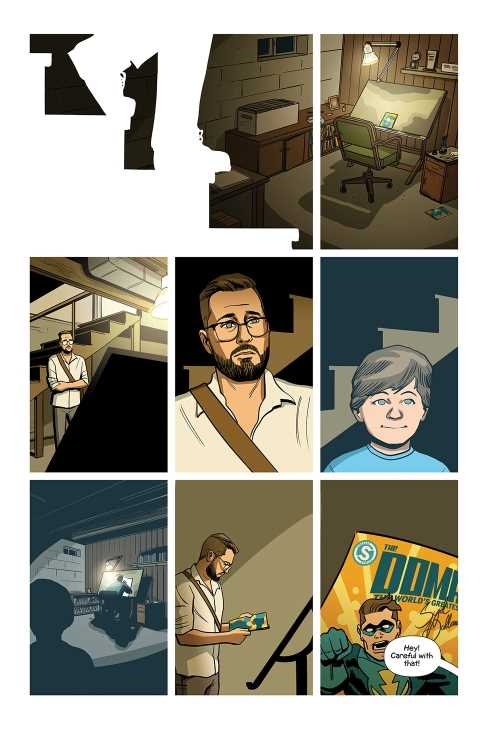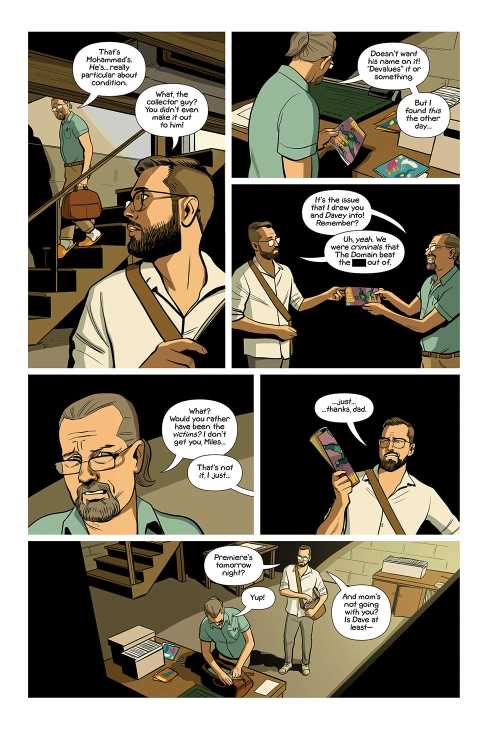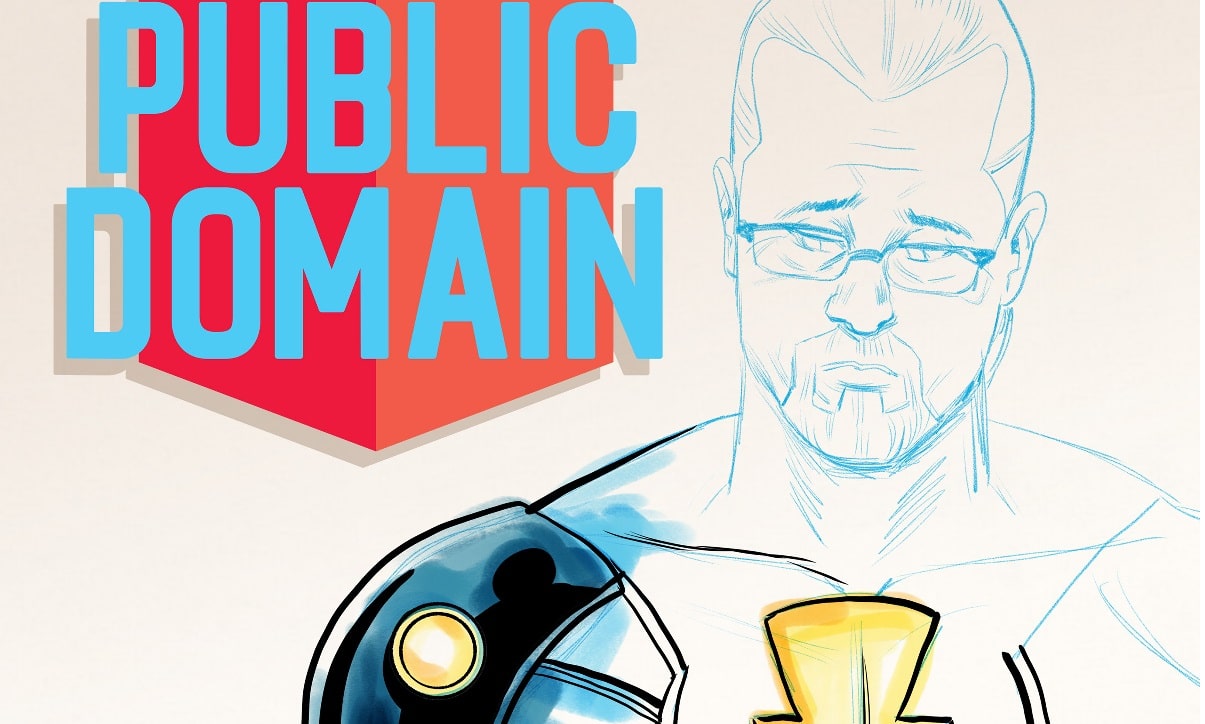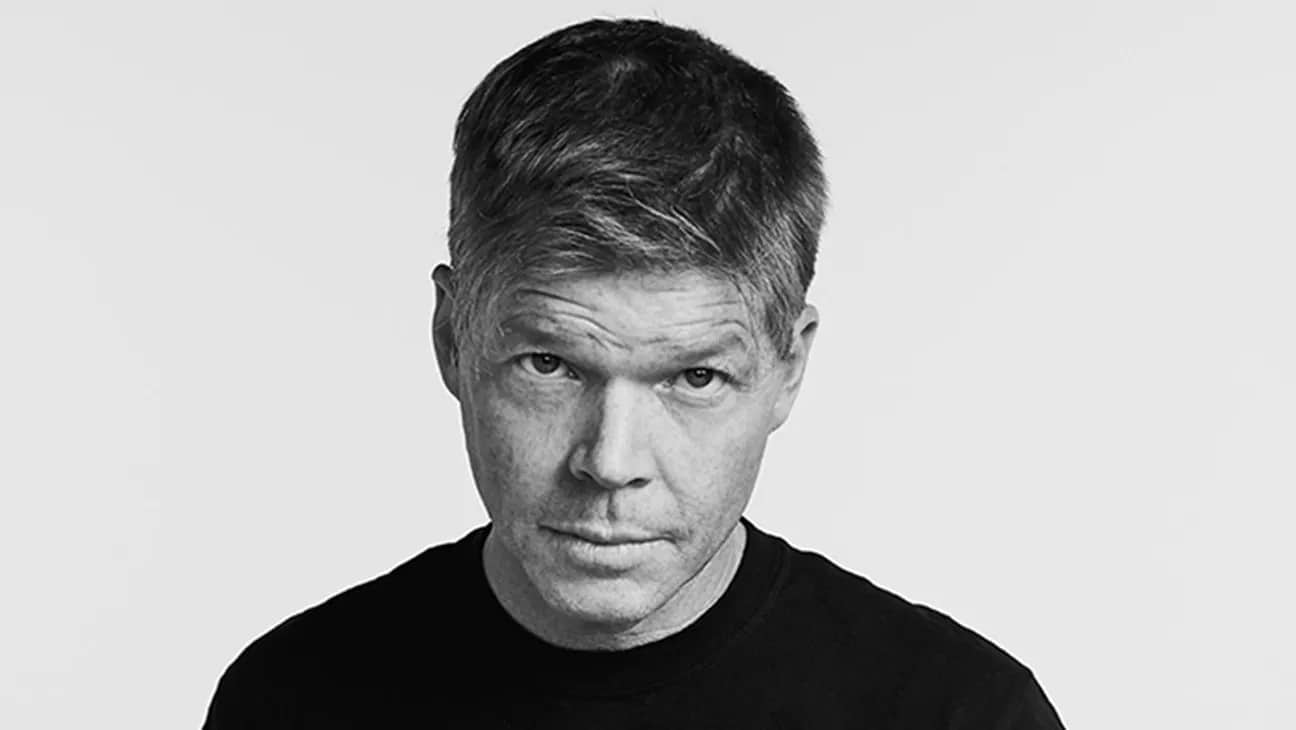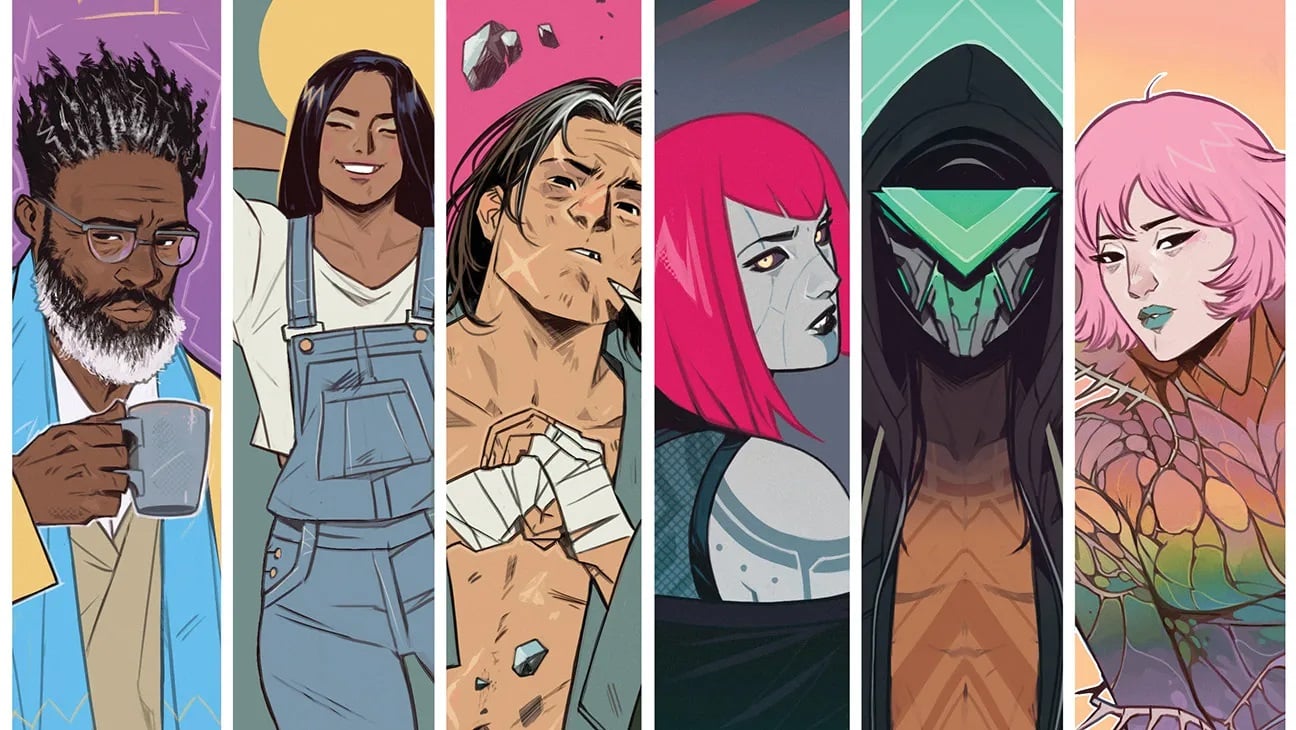 Public Domain, Vol. 1
Public Domain, Vol. 1
Writer/Artist: Chip Zdarsky
Publisher: Image Comics
Chip Zdarsky’s Public Domain — a Substack project with a print run from Image Comics — confronts the fraught reality of comics creators’ rights and the exploitation that provides the foundation of the ever-growing Hollywood superhero media empire. The book follows the lives of Syd Dallas, the fictional creator behind The Domain, a world-famous superhero, as well as the lives of his family.
At the center of the story are Dallas’ two sons. Public Domain is largely about the brothers’ relationship, and how they navigate the legacy of their father’s work. Through this, Zdarsky crafts an engaging, emotional, and funny story. While the setting for the characters’ personal conflicts is the niche world of comic book publishing, this book’s ambition is far more universal. Those with an interest in comics history will appreciate Zdarsky’s thoughtful and honest approach. This level of raw honesty is particularly noteworthy for a man working on two of the most high-profile superhero books at both of the industries’ largest superhero publishers, with Zdarsky currently writing Batman and Daredevil.
On a fundamental level, however, Public Domain is about family and how the decisions of one member impact the course of many lives. When Syd signed a work-for-hire contract, and devoted his children’s formative years to a creation he had no future-proofed stake in, his perception was that he was providing for his children and making an honest living.
But his sons saw a man more devoted to his work than to the family who wanted nothing more than to be with him. And so The Domain becomes a symbol with different meaning to every member of the family. Candy, Syd’s wife, sees a bitter reminder of the success and riches of which she was robbed. One of his sons — the struggling journalist, Miles — sees an avatar of his father’s foolishness and emotional disregard, while his tattoo-artist brother Dave sees a noble legacy. Syd sees in The Domain a physical manifestation of his noble work to provide for his family.
But the Dallas family does not own that legacy, nor does it share in the wealth it generates for The Domain’s corporate parent. Syd’s part in the history of his creation is all but forgotten. His creative partner, Jerry Jasper, has capitalized on that piece of legend. Those who work on the film adaptations view the character as nothing but a vessel for stardom. As Miles interviews the star of the latest adaptation of his father’s exploited creation, he can’t help but mock the actor’s disdain and lack of curiosity about his father’s life’s work.
“Superhero movies are our modern mythology,” the actor says in a rehearsed line of nonsense publicity fluff. Miles retorts, “The superhero comics are the mythology. You’re just adapting them.”
There’s palpable and just frustration for the erasure of the many comics creators who see few if any royalties from that effort. Zdarsky knows these stories and has seen the pittance handed down to his colleagues and collaborators. He knows as well as any fan the mistreatment of Superman creators Jerry Siegel and Joe Schuster and the long-denied credit given to Batman co-creator Bill Finger, and the boisterous bravado of Stan Lee that overshadowed his collaborators, Jack Kirby and Steve Ditko.
Public Domain draws on all of these stories and echoes different qualities from these legends, but it is not a dramatization of a true story. Nor is it a vicious takedown of any individual or company. It instead uses these real conflicts to explore how generations respond to one another, how relationships are colored by perception, and good intentions gone wrong. In that respect, Public Domain is not merely a comic about comics, or a metatextual exercise that uses the medium to skewer the people who make and profit off of it. With this story, Zdarsky celebrates the unsung and unheralded labor of those who have been unfairly robbed of their contribution to the real modern mythology.
Zdarsky’s stripped down cartooning and bright colors help anchor the story in its characters and their relationships. He lingers on facial expressions, allowing his art to speak in place of words. The bright palette of the Dallas’s quiet suburban life belies the complexity of their situations. Zdarsky also uses the art to amplify the themes at the heart of his story. Comics are a medium particularly suited for this story about legacy and the empty spaces in family history. The page and panel layouts are leveraged in creative ways to embody how the past intrudes upon the present. Memories exist side-by-side with the present day in a haunting echo. In the first chapter, Miles descends into the basement of his childhood home. His footsteps and the stairs are a simple pure-white comprised of negative space that break up the panels, as if Miles is stepping across time itself. Then, in silence, he looks morosely at his father’s drafting table. In the next panel, he is a child, waiting quietly and expectantly for his father to notice him there. Time and space exist side by side, the past as real as the present.
With confident storytelling and an engaging cast, Public Domain Vol. 1 offers intrigue, humor, and heart in equal measure. It’s another strong outing from Chip Zdarsky, who continues to showcase new depths and range in storytelling.
Verdict: Buy
Read more trade collection reviews every Thursday in our Trade Rating column!


